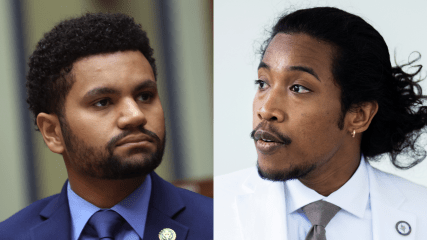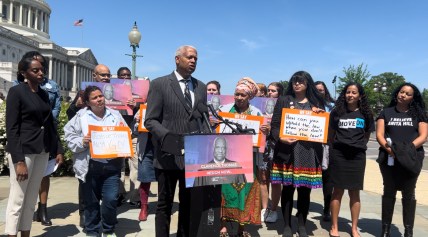Reps. Johnson and Bowman re-introduce RAP Act to protect rappers in the courtroom
“For too long, artists have been unfairly targeted by prosecutors who use their lyrics as evidence of guilt,” said Congressman Hank Johnson, D-GA.
Prosecutors could soon be prohibited from having free reign to use rap artists’ lyrics against them in criminal cases, a practice members of Congress and advocates say disproportionately impacts the Black community.
On Thursday, U.S. Reps. Hank Johnson, D-GA and Jamaal Bowman, D-NY, held a press conference at the U.S. Capitol to re-introduce the Restoring Artistic Protection Act, also known as the RAP Act. If passed into law, the legislation would prohibit the use of artists’ lyrics in the courtroom.
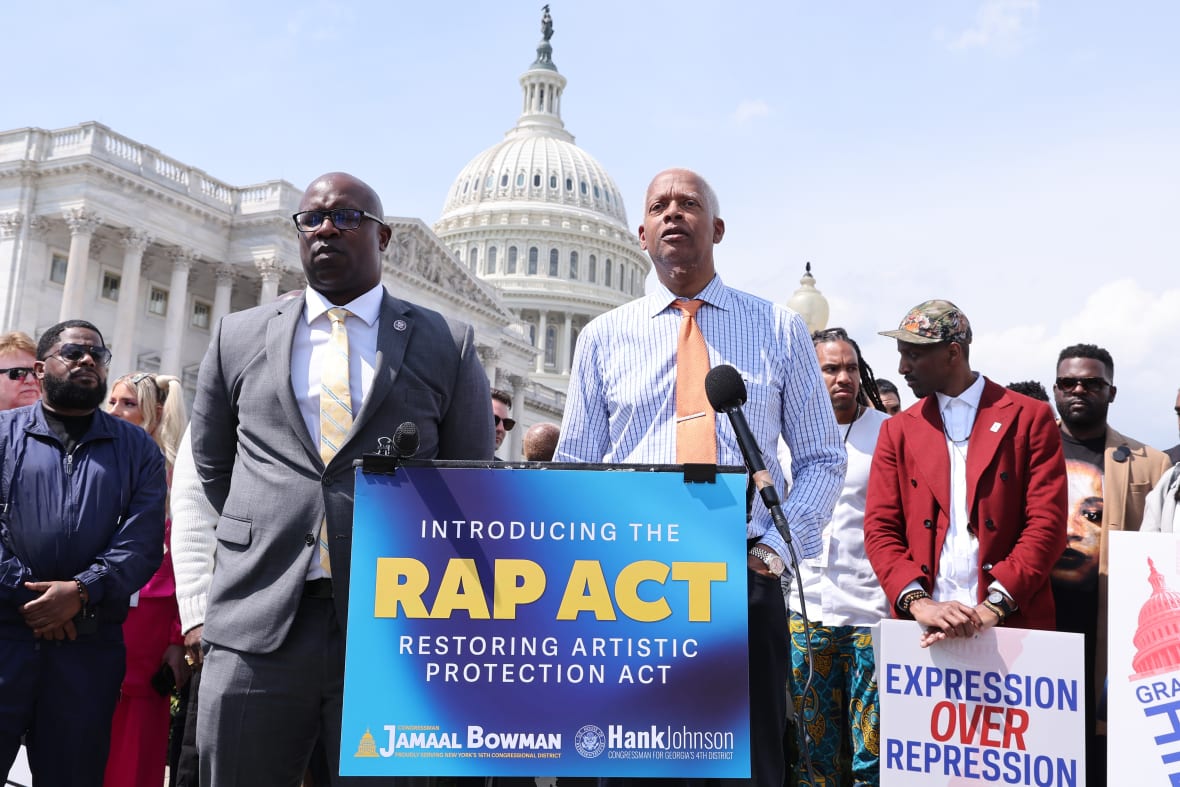
“For too long, artists have been unfairly targeted by prosecutors who use their lyrics as evidence of guilt, even though there’s no evidence that the lyrics are anything more than just simply creative expression,” Congressman Johnson told reporters.
“An artist’s creative content shouldn’t be used as evidence of guilt without the prosecutor having to show … that the artistic expression was intended to be taken as true,” he insisted.
The introduction of the RAP Act comes several months after rapper Young Thug was arrested on RICO charges for allegedly starting a street gang in Georgia. In that case, the judge read several of the rapper’s song lyrics in the courtroom as evidence to portray him as a criminal.
During the press conference, Congressman Bowman said he supports the bill because rap artists influenced his political career.
“I wouldn’t be here if it wasn’t for Eric B. & Rakim, Big Daddy Kane, KRS One, X-Clan, Public Enemy [and] Brand Nubian,” he shared.
He continued, “If Rakim didn’t tell me with knowledge of self, there’s nothing I can’t solve. I never would have pursued knowledge of self, which gave me the self-esteem and self-worth to be standing here before you today.”
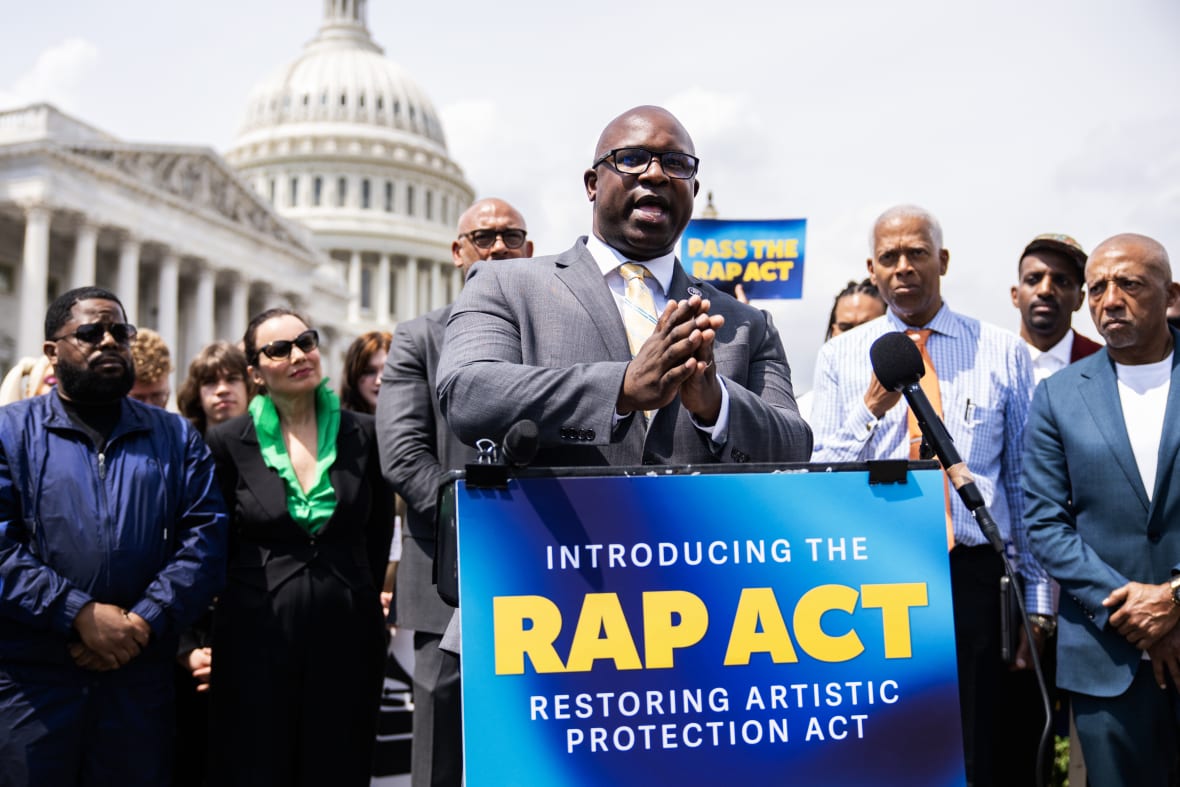
Bowman cautioned that if the RAP Act is not passed, it could open a Pandora’s box.
“The minute we start saying you can’t use those rap lyrics, we’re going to start saying, you can’t use those country lyrics. You can’t use those rock lyrics. God forbid the wrong person gets into the White House and starts talking to heavy metal or another,” he argued.
Given the racial climate in the U.S., Bowman said that although all forms of legal self-expression should be preserved, “we have to provide even more protection for Black art and hip-hop. Why? Because we continue to see the disproportionate targeting of Black artists.”
Record producer Rico Love attended Thursday’s press conference and thanked Congressmen Johnson and Bowman for their efforts to protect rappers’ First Amendment rights.
“As a music creator myself, I know how important it is that we safeguard artists’ freedom to create at all costs,” said Love.
He emphasized that it’s important that the music industry and Congress collaborate “to eradicate the biases that come with the unconstitutional practice of using lyrics as evidence which disproportionately affect artists of color and penalizes the creativity of Black and brown creators.”
According to Johnson, prosecutors in more than 500 criminal cases have used artists’ lyrics as evidence against them.
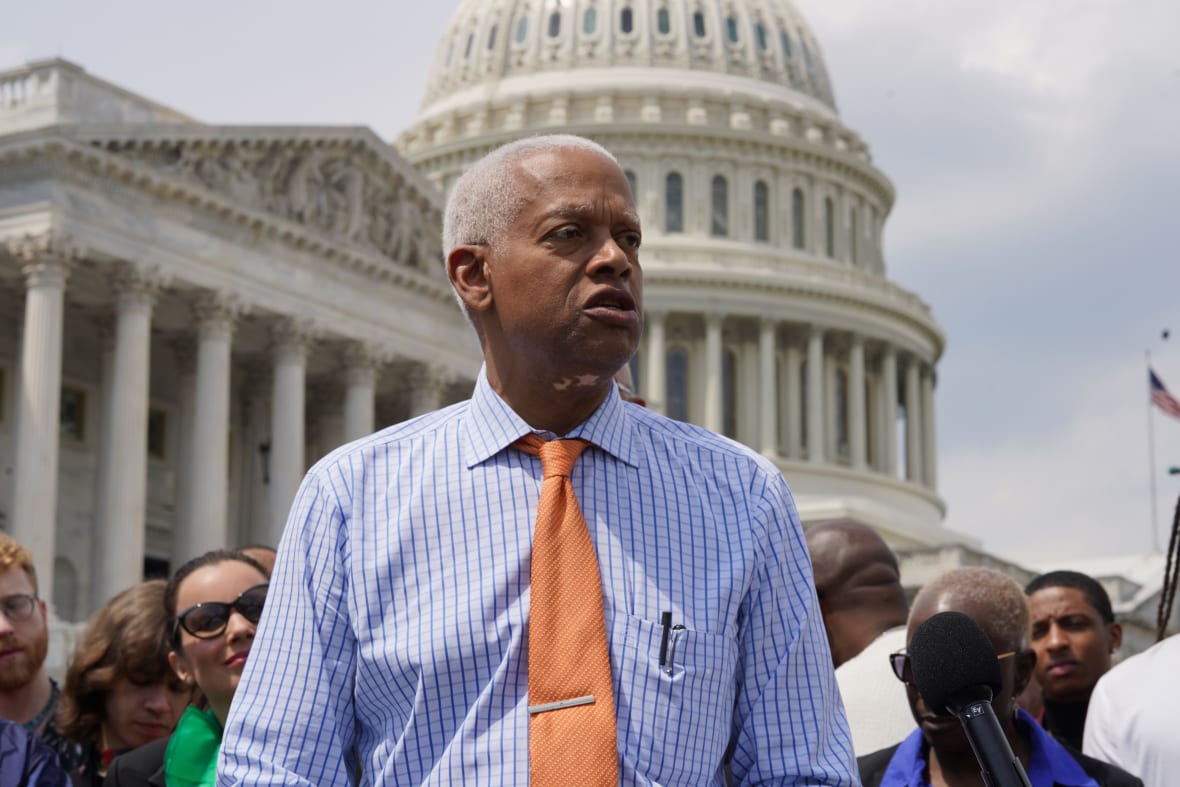
The Georgia congressman first introduced the RAP Act in July 2022. Although it was not enacted into law, Johnson told theGrio he expects the proposed statute to gain the support of his Republican colleagues this time around.
“[Similar bills] are already passing in state legislatures which are controlled by Republicans,” he said.
Music mogul Kevin Liles also attended the congressional event and told theGrio that even if the RAP Act is not passed, “You can’t discourage the truth. You can’t discourage hip-hop. We’re not afraid to speak our truth; we’ve been speaking our truth from NWA to now, Young Thug.”
However, Liles said, America promised every citizen “equal justice under law … so, let’s pass this bill and keep the promise, not just for artists but for all of us.”
TheGrio is FREE on your TV via Apple TV, Amazon Fire, Roku and Android TV. Also, please download theGrio mobile apps today!
